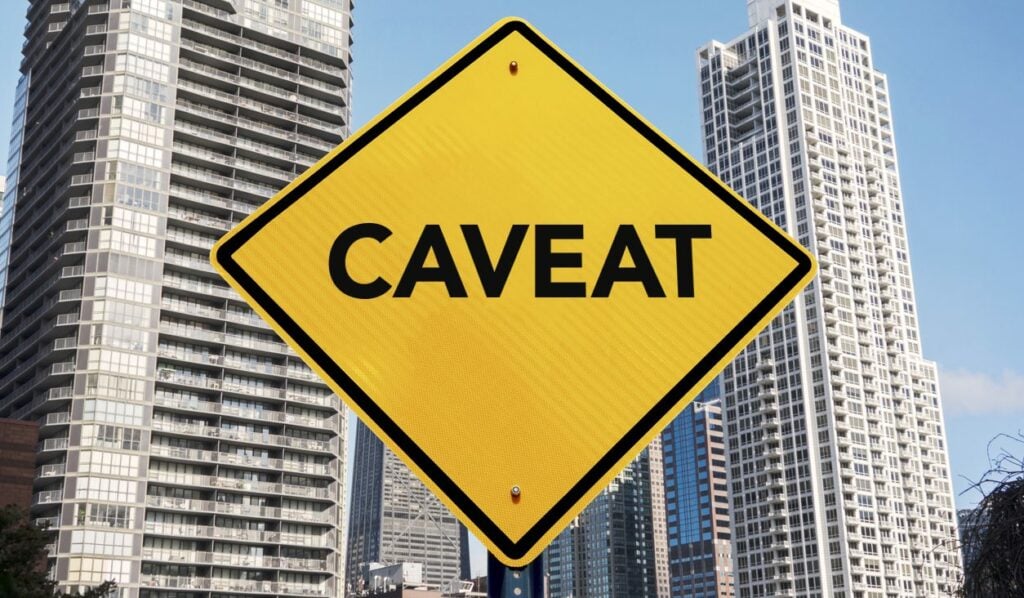Get a Quote
It's quick and easy to get a quote.
Simply leave us your name, phone number and what you need quoted and one of our expert conveyancing solicitors will call you straight back.


If you are a property owner and a caveat is lodged on your land title, you may face issues when trying to sell the property or take out a mortgage against it. Here’s how a caveat might affect you and what you can do about it.
What is a caveat?
A caveat is a type of injunction that can be registered against a land title to prevent any dealings associated with the title until that caveat has been removed, withdrawn, canceled, or has lapsed.
Who can lodge a caveat?
In Queensland, a person who has what the law considers to be sufficient interest in the land may lodge a caveat on the title. This includes:
- someone who is seeking to claim an interest in the land or property, such as a person who has entered a contract to purchase the property;
- the registered owner of land or property who is seeking to protect their interests in it, such as if another party is trying to sell that land or property;
- someone who is to be transferred an interest in the land or property by order of an Australian Court; or
- a registrar who, under section 17 of the Land Titles Act 1994 (Qld), has the power to do so.
If a person is claiming an interest in a property or land by lodging a caveat, they must specify what their interest is on the caveat form. Examples of interest include when:
- a person has legal or equitable ownership in the land or property; or
- a person has a right to or privilege over the land or other property.
The latter may include a person who is not registered as an owner on the title but has contributed money to the purchase of the land or property or a builder who is owed money for constructing property on a piece of land.
What happens once the caveat is lodged?
After a caveat has been registered on the title, certain steps need to be taken to secure the caveat or it will lapse within three months of lodgement.
A caveat may also lapse within fourteen days after lodgement if the person affected by the caveat serves a notice on the person who lodged the caveat requesting them to commence court proceedings to establish the interest they are claiming under the caveat.
To avoid the caveat lapsing, the person lodging it must commence proceedings in a court to establish their interest within three months, or fourteen days of receiving notice.
How can this affect me?
A caveat can affect you if you are planning to deal with the title to the property and the caveat is registered on the title. If, for example, you are planning to sell the property or take out a loan against it while there is a caveat in place, the caveat may stop you from doing so.
The caveat may not stop a person from selling a property (such as a mortgagee in possession sale) in some circumstances.
If you do not plan to deal with the title immediately after it is lodged, you may still wish to have it removed or the issue resolved so it does not hinder any future plans.
In some circumstances, the party who lodged the caveat may have the right to forcibly sell the property.
Can a caveat be removed?
A caveat can be removed in one of four different ways. The first is if it lapses. The second way is through application to the Supreme Court of Queensland. If the caveat has been registered and secured on the title the Court will need to make an order stating the caveat can be removed from the title, and the caveat will remain effective until the order has been made and the withdrawal completed. Thirdly, a Registrar may cancel the caveat, and finally, the caveator (the person who lodged the caveat) can withdraw it. This is usually done after negotiation with the party that is affected by the caveat.
Can a caveat be registered multiple times?
If a caveat has already been lodged over a property, a second caveat is not able to be lodged on the same grounds as the initial one. This rule applies even if the initial caveat has since lapsed or been removed from the title.
Can I lodge a caveat?
Lodging a caveat without a sufficient interest may result in liability for substantial damages and may result in Court action. It is important that you obtain legal advice from a lawyer experienced in the area prior to lodging a caveat.
Conclusion
This article contains general information which may not apply in your circumstances. If someone has lodged a caveat on your property, or you wish to lodge a caveat and seek assistance in doing so, speak to our experienced lawyers who can help you with the process.
